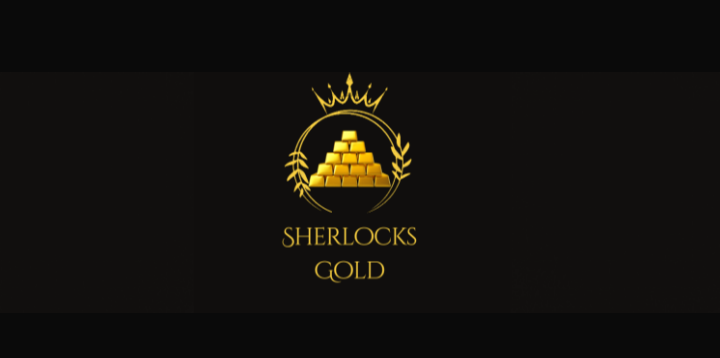CHAPTER 13
When I talk about ‘Masquerade in Moscow,’ I’m not just referring to a grand ball with guests donning elaborate masks. I’m referring to a phenomenon – a cultural motif that embodies the mystique and the many untold stories woven into the fabric of this city’s compelling history.
Moscow, with its rich past full of intrigue and power struggles, seems to have always been a fertile ground for conspiracy theories. These range from the alleged hidden treasures beneath the Kremlin to the swirling rumors of espionage that spiked during the Cold War and still persist today. My aim is to carefully sift through these tales and present you with an informed perspective that respects the truth.
‘The Creature from Jekyll Island,’ a book by G. Edward Griffin, has fueled a myriad of conspiracy theories with its exploration of the Federal Reserve System. Some of its core ideas—clandestine meetings, the concoction of far-reaching economic strategies—resonate with those who suspect secret machinations behind Moscow’s historic facade. This comparison doesn’t suggest a direct link, but rather a thematic parallel: powerful entities operating behind closed doors, which is a narrative common in conspiracy lore.
I’m committed to navigating this complex tapestry with a critical eye, reminding myself and you, the reader, that while it’s easy to be swept up in enigmatic stories, our goal remains to chase the truth, no matter how obscured.
The Creature from Jekyll Island: A Conspiracy Blueprint?
I often approach the acclaimed book ‘The Creature from Jekyll Island’ with a blend of curiosity and scrutiny. Authored by G. Edward Griffin, this book presents a dramatic expos� on the Federal Reserve, suggesting that some of the world’s wealthiest individuals conspire to control the global economy. Here, I draw parallels between the book’s conspiracy-laden narrative and Moscow’s own complex political theater, frequently cloaked in mystery.
The narrative Griffin spins about financial manipulation and covert power resonates with how some view Moscow’s perceived enigmatic machinations. People have long speculated about the behind-the-scenes activities that govern Moscow’s political agenda, from espionage tales during the Cold War to modern allegations of cyber manipulation. When I delve into these stories, I see how they echo the overarching theme of power brokering that ‘The Creature from Jekyll Island’ also tackles.
Distinguishing fact from the sensationalized plot of the book can be as challenging as separating plausible intelligence ops from exaggerated spy folklore that often surrounds Moscow. To do this effectively, I analyze historical data, compare it to the book’s assertions, and measure that against Moscow’s publicly known actions. This approach can reveal surprising insights into global economic patterns, and sometimes, actual instances of overreach and manipulation.
Given its compelling narrative, it’s understandable why some might overlay the framework that Griffin proposes onto Moscow’s history and present. However, as someone committed to factual accuracy, I exercise caution. While it’s crucial to acknowledge valid critiques of any political system, including Moscow’s, I focus on evidence over speculation and remind readers of the importance of this distinction.
Conspiracies and Culture: The Masquerade’s Role in Modern Moscow
Conspiracy theories aren’t just the fabric of imaginative fiction; they have tangible effects on the perception of a place and its people. When we talk about Moscow, these narratives often paint a picture shrouded in intrigue and mystery, affecting how we view its role on the world stage.
Cultural narratives are powerful, and in a city with a history as rich and complex as Moscow’s, it’s not surprising that conspiracy theories find fertile ground. They can amplify fears, shape public opinion, and even influence policy. That’s why understanding the interplay between these stories and the cultural identity of Moscow is crucial.
However, it’s also essential to approach these narratives with a clear head. We have to distinguish between what is possible, what is probable, and what is simply conjecture disguised as truth. Amidst the masquerade of conspiracies, there are threads that lead to real issues and events that deserve our attention.
As we dissect these tales, I believe in equipping you with tools to critically assess what you hear and read. Are the sources reliable? Do the claims hold under scrutiny? And most importantly, how do these stories affect our understanding of Moscow and its place in our global community?
In writing this piece, my responsibility has been to caution against taking conspiracy theories at face value, while also acknowledging that within the convoluted layers, there may be elements worth examining closer. It’s about balance—weighing the intrigue of a good story against the facts at hand.
Ultimately, for individuals fascinated by the dance of conspiracy and truth, Moscow presents a complex arena. Our duty is to engage with these stories responsibly, ever mindful of the line between suspicion and sensationalism. It is through this lens that we can better understand not only Moscow’s global narrative but our own role in how we interpret and shape that dialogue. When we look closer maybe the Bolshevik revolution was not spontaneous uprisings of the masses. What if the Rothschild formula was used where outsiders funded, planned and orchestred the uprising? Maybe Cecil Rhodes one of the worlds wealthiest men at the time didn’t create a secret society with the sole pupose of world dominion and the establishment of a modern feudalist society controlled by the world central banks. What if his round table group in the United States became know as the CFR the Council of Foreign Relations which was first dominated by JP Morgan then later by the Rockefellers wasn’t the most powerful group in America today? What if this group was even more powerful than the federal government, because almost all of the key positions are held by its members in the government? These are just questions…………
Chapter 12 The Sinking Of The Lusitania
Chapter 14 The Best Enemy Money Can Buy
